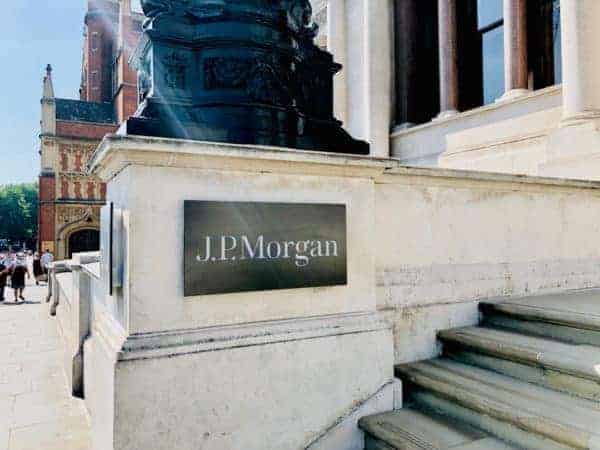JPMorgan, the largest US bank and the world’s sixth largest in terms of total assets, is reportedly working with Fintech firm Affinity Capital Exchange, in order to develop new types of financial assets – which will be based around the trading of loyalty point portfolios.
 Affinity Capital’s tech has been designed to turn rewards programs into a standardized, exchangeable currency that may be traded by asset managers. The currency can also be used as a type of collateral to raise funding. The financial asset class, called “Reserve Points,” is divided into smaller units and then sold off to investors via the Affinity Capital Exchange marketplace.
Affinity Capital’s tech has been designed to turn rewards programs into a standardized, exchangeable currency that may be traded by asset managers. The currency can also be used as a type of collateral to raise funding. The financial asset class, called “Reserve Points,” is divided into smaller units and then sold off to investors via the Affinity Capital Exchange marketplace.
The new program will allow airlines, hotels, and other major loyalty providers to realize the value of their loyalty points portfolios to raise funds from lenders, institutional clients, and other operating partners.
Industry research analysts had estimated, in January 2020, that the total value of the top 100 airline loyalty programs was valued at around $200 billion.
Jim Casey, global co-head of Investment Banking, JPMorgan, stated:
“We are always looking for innovative ways to help our clients think strategically about their businesses and create value. With ACE, we have the potential to provide our clients and their operating partners a unique opportunity to generate value together, while also enabling access to a wider investor base.”
Atanas Christov, Founder and CEO of ACE, remarked:
“We are thrilled to work with J.P. Morgan to provide compelling solutions that match the liquidity needs of loyalty program owners with the interests of their operating partners and demand from lenders and investors. Combining ACE’s technology with J.P. Morgan’s global scale creates an unmatched value proposition for clients, providing flexible new products that fit the needs of lenders, investors and operating partners for security in return for fresh liquidity to critical businesses.”
JPMorgan was recently ordered to pay a $920 million fine after the bank admitted that traders had intentionally manipulated markets in a “spoofing” case.
JPMorgan’s management noted that 15 traders working in its precious metals and treasury department had attempted to rig trading prices by using allegedly fake orders for more than 8 years.
The traders allegedly caused huge losses of over $300 million to other participants in precious metals and Treasury markets. This, according to court filings submitted earlier this week. The bank has accepted that it is responsible for the market abuse and also for the traders’ individual actions.
The US Justice Department has filed two counts of wire fraud against JPMorgan’s parent company. However, the court also decided to defer prosecution involving the charges as part of a 3-year deal that requires JPMorgan to report its remediation and compliance strategy and related actions to the US government.

